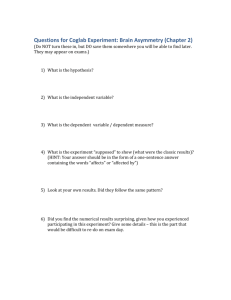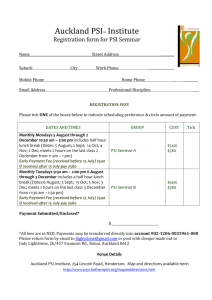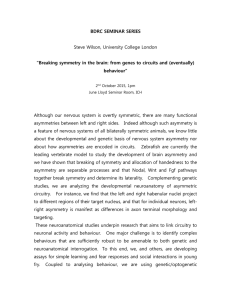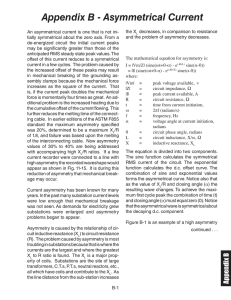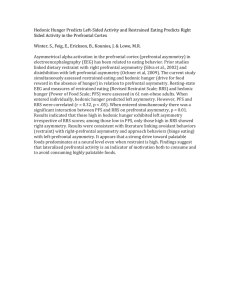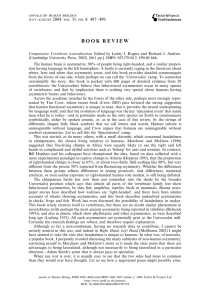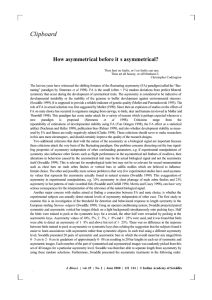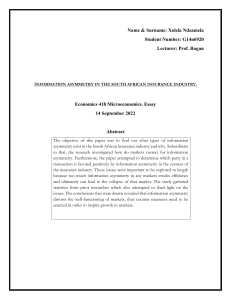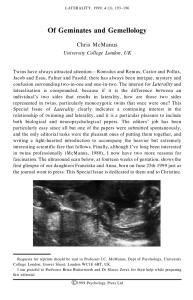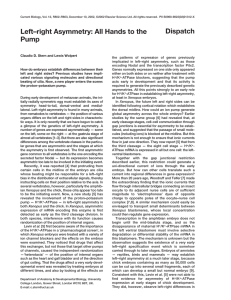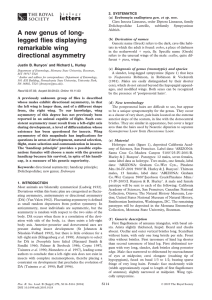Homework 2 for Physics 222/225b Due Date: Tuesday, February 2nd
advertisement
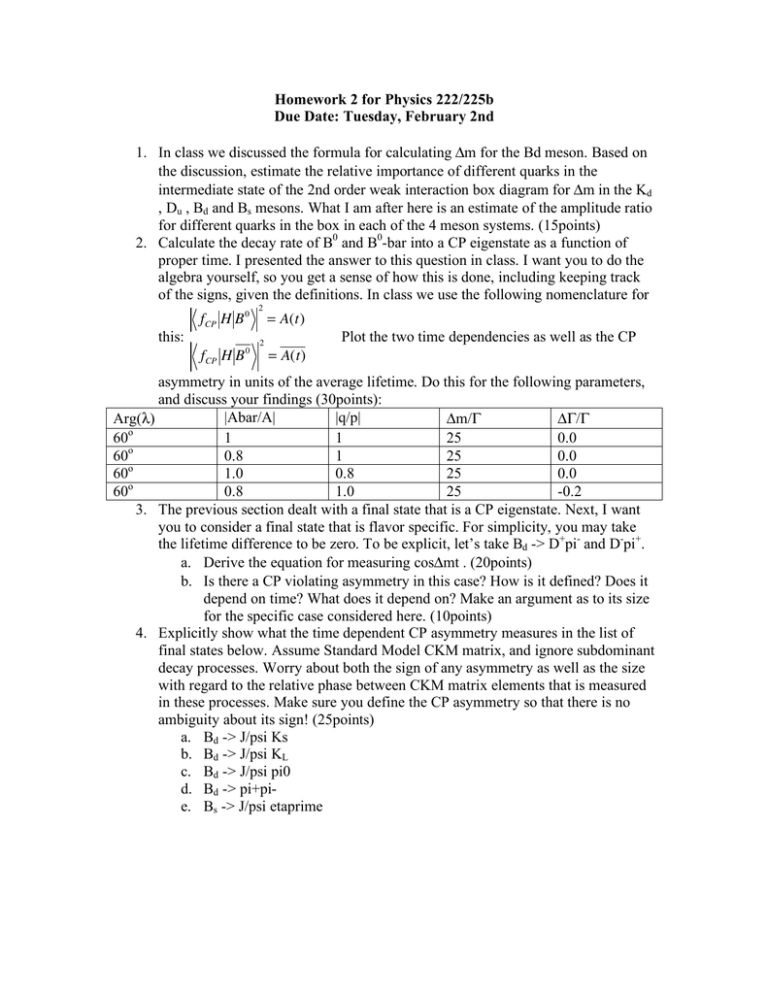
Homework 2 for Physics 222/225b Due Date: Tuesday, February 2nd 1. In class we discussed the formula for calculating Δm for the Bd meson. Based on the discussion, estimate the relative importance of different quarks in the intermediate state of the 2nd order weak interaction box diagram for Δm in the Kd , Du , Bd and Bs mesons. What I am after here is an estimate of the amplitude ratio for different quarks in the box in each of the 4 meson systems. (15points) 2. Calculate the decay rate of B0 and B0-bar into a CP eigenstate as a function of proper time. I presented the answer to this question in class. I want you to do the algebra yourself, so you get a sense of how this is done, including keeping track of the signs, given the definitions. In class we use the following nomenclature for this: f CP H B 0 f CP H B 0 2 2 = A(t) Plot the two time dependencies as well as the CP = A(t) asymmetry in units of the average lifetime. Do this for the following parameters, and discuss your findings (30points): |Abar/A| |q/p| Arg(λ) Δm/Γ ΔΓ/Γ o 60 1 1 25 0.0 60o 0.8 1 25 0.0 o 60 1.0 0.8 25 0.0 60o 0.8 1.0 25 -0.2 3. The previous section dealt with a final state that is a CP eigenstate. Next, I want you to consider a final state that is flavor specific. For simplicity, you may take the lifetime difference to be zero. To be explicit, let’s take Bd -> D+pi- and D-pi+. a. Derive the equation for measuring cosΔmt . (20points) b. Is there a CP violating asymmetry in this case? How is it defined? Does it depend on time? What does it depend on? Make an argument as to its size for the specific case considered here. (10points) 4. Explicitly show what the time dependent CP asymmetry measures in the list of final states below. Assume Standard Model CKM matrix, and ignore subdominant decay processes. Worry about both the sign of any asymmetry as well as the size with regard to the relative phase between CKM matrix elements that is measured in these processes. Make sure you define the CP asymmetry so that there is no ambiguity about its sign! (25points) a. Bd -> J/psi Ks b. Bd -> J/psi KL c. Bd -> J/psi pi0 d. Bd -> pi+pie. Bs -> J/psi etaprime
